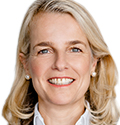Bond outlook 2025: “High interest rates will continue”

It does not look like there will be a return to low or even zero interest rates in 2025. However, strong fluctuations in yields are expected in phases, particularly in the USA.
3 January, 2025 FRANKFURT (Frankfurt Stock Exchange). Ongoing wars in Ukraine and the Middle East, a new US President Donald Trump, a weakening Chinese economy - the prospects for the European and especially the German economy are rather bleak for the new year. “2025 is likely to be a challenging year,” says ICF bond trader Arthur Brunner, particularly with regard to Trump and the highly indebted France.
Tim Oechsner, who trades bonds for Steubing AG, is nevertheless confident about the bond market and assumes that the positive environment will continue. Yields are still dependent on central bank decisions and economic and geopolitical uncertainties. In addition, the start of the year could still be characterized by price setbacks and yield increases on the bond market due to Trump's inauguration. “Overall, however, the bond market in 2025 could benefit from a stabilized global economy, an easing of monetary policy and persistently low inflation,” he explains.
Portfolio manager Jens Herdack from Weber Bank points out that the absolute interest rate level in all market segments is still at an attractive level. “And the latest statements by the head of the US Federal Reserve indicate that the high interest rate level in the USA will remain with us for a while yet,” he emphasizes.
No interest rate slide in sight
The yield on ten-year German government bonds, which fluctuated between 1.93% and 2.71% in 2024, is at 2.37% on Friday morning, while the yield on ten-year US Treasuries, which fluctuated between 4.05% and 4.62% in 2024, is at 4.55%. No major changes - downwards or upwards - are expected for 2025. “For the new year, we expect ten-year Bund yields to move in a range between 2 and 2.5 percent - initially at the lower end of the range, then higher,” explains Commerzbank analyst Hauke Siemßen.
In Helaba's base scenario, the yield on ten-year German government bonds will be 2.5 percent at the end of 2025 and rather lower in the first half of the year. The yield on ten-year US Treasuries will be “well above 4 percent” towards the end of the year. “High US government debt, the risk of rising tariffs and the Fed's questioned monetary policy independence have the potential to drive up risk premiums, especially for longer maturities,” says analyst Ulf Kraus. “Particularly in the USA, strong fluctuations in yields must be expected at times.”
Concerns about France
In addition to concerns about Trump and his potentially inflation-driving course, France is also likely to remain an issue, as Brunner suspects. In the year just ended, the risk premium for ten-year French government bonds over German bonds rose to its highest level since the financial crisis. Oechsner expects the premium to remain at around 80 basis points. “This is historically high and the potential for tightening is rather low.”
Corporate bonds: Credit rating is crucial
According to traders, the demand for “good” names in the corporate bond business is likely to continue in 2024. “Not only government bonds or government-related bonds remain attractive - the yields of all bond segments are above the multi-year average interest rates and continue to offer attractive opportunities,” explains Oechsner. “Real returns after inflation can be achieved.”
According to Jens Herdack from Weber Bank, however, the premiums paid for bonds from companies with low credit ratings have fallen to “decade lows”. “In our view, this means that the risks taken are no longer adequately rewarded. There are therefore not many attractive opportunities,” says Herdack. “The situation is challenging for SMEs, as interest rates are not falling as quickly as originally expected,” Brunner also emphasizes. This is putting pressure on margins. “The last quarterly reports were below expectations in around three quarters of cases.”
By Anna-Maria Borse, 3 January, 2025, © Deutsche Börse
About the Author
Anna-Maria Borse is a financial and business editor specializing in the financial market/stock exchange and economic topics.
Feedback and questions to redaktion@deutsche-boerse.com





